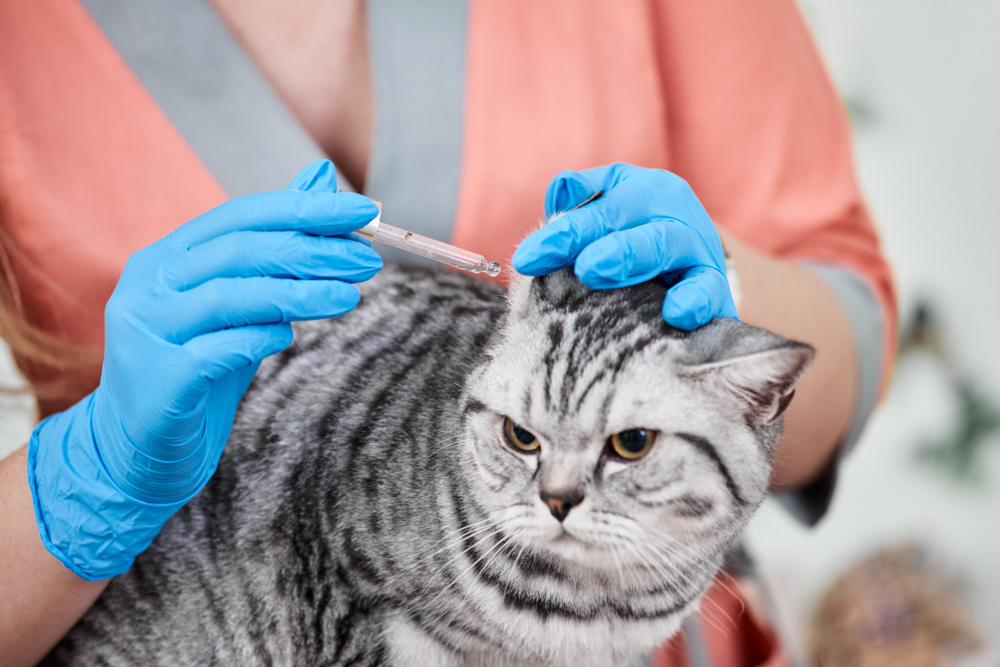If the thought of giving your pet medication is distressing, you’re certainly not alone. You may throw your veterinarian a puzzled look when you receive a bottle of pills for your dog or cat. But, worry not. Whether your furry friend needs daily ear drops or weekly oral tablets, our helpful tips will relieve some of the stress, while helping keep your pet healthy. Join us on the journey to calmer medication administration with these top tips from our Countryside Veterinary Hospital professionals.
#1: Get to know your pet’s likes and dislikes
Will your cat willingly gobble up anything you put in front of them, or are they careful and cautious about food and treats? Does your dog hate having their ears touched by anyone but you? Is your pooch an expert at avoiding the single pill in his food bowl? Learning your pet’s likes, dislikes, strengths, and weaknesses will help you figure out the best way to medicate them—without added stress. Fortunately, veterinary medications have evolved tremendously to accommodate pets with various quirks and peculiarities. From chewable, anti-inflammatory tablets, to long-lasting ear medications, to injectable heartworm preventives, medicating your pet has never been easier. Next time your pet needs a new prescription medication, convey their aversions to our veterinary team, so we can make appropriate recommendations.
#2: Use food to your advantage
Orally medicating food-motivated pets in particular can be a breeze. Try placing capsules or tablets in a small piece of bread, or sprinkled over a can of tasty soft pet or baby food. Some pets may allow you to put the medication directly into their bowl of kibble without an extra sniff. Dogs tend to be more accepting of medications in their food, while cats may be more finicky.
If your dog requires oral pills, and they simply won’t take them with food, you may have to resort to medicating them by hand. To do this:
- Hold the pill with one hand, and, with your other hand, gently open your dog’s mouth from the top of the muzzle, right behind the canine teeth.
- Tilt your dog’s nose to the ceiling, and use the hand with the pill to further open their mouth further by putting gentle pressure on the lower jaw.
- Place the pill as far back on the tongue as possible without stimulating the gag reflex.
- Close the mouth, and gently massage the neck area, or blow lightly on the nose to encourage swallowing.
For help on administering pills to cats, this video is helpful.
#3: Prepare yourself and your pet—mentally and physically
Your pet may be easygoing, but a new medication can upset your routine, and cause unnecessary tension—and your pet may feed off of your feelings. Before jumping in, take a deep breath, and prepare. Here’s a list of suggestions to get you started:
- Pick a responsible caretaker to administer the medication. Choosing the same person for this chore will keep things consistent for your pet, and help ensure doses aren’t missed—or repeated.
- Choose a quiet area of the home that is free of other pets or distractions.
- Gather supplies, such as towels, oral syringes, food, or a muzzle—whatever you will need.
Remember, new medications may take time and a little effort for your pet to get accustomed to. If they spit out the first dose, or half of their ear medication lands on your bathroom rug, don’t fret. Stay calm and try again.
#4: Follow up with an appealing reward
This step is crucial in garnering your pet’s trust for the next time you’ll need to administer medication—in all likelihood, this won’t be the last time you’ll need to do this. During the process, offer your pet abundant praise, but try to stay relatively calm, as you don’t want to stimulate your pet too much while giving medication. Immediately after the deed is done, offer a tasty treat, or a fun romp in the house or yard, to reward their behavior. Ensure you don’t delay, or your pet may not connect the reward to the desired behavior.
#5: Seek help from Countryside Veterinary Hospital when necessary

If you are particularly concerned about medicating your pet, our veterinary team is only a phone call away. We are happy to set up a consultation, to guide you through this process, and offer tips along the way. Some medications simply don’t work out for certain pets, despite diligent pet parents and lots of trial and error. Luckily, plenty of alternatives exist, and we’ll help you find one that suits your pet’s needs, and is available. Some medications can be compounded into transdermal creams or liquid medications, for easier administration.
Don’t suffer in silence—contact Countryside Veterinary Hospital with any medication-related questions or concerns.








Leave A Comment